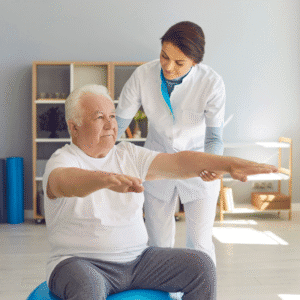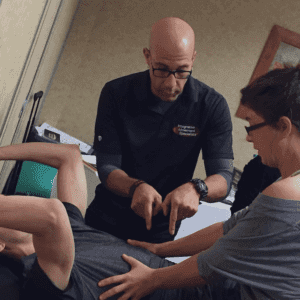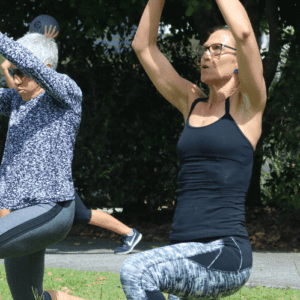Call us now:
Cancer Exercise Trainer
$445.00
Learn how to assess clients’ health, understand various treatment types, and design appropriate programs based on the type of cancer, treatments, and side effects. The program emphasises cancer-specific contraindications, modifications, and the role of exercise in reducing cancer recurrence and improving physical function.
- Premium Quality
- Secure Payments
- Satisfaction Guarantee
Become a Certified Cancer Exercise Trainer and transform lives with confidence.
Whether your clients are in treatment, recovery, or survivorship, this evidence-based course gives you the tools to support them safely and effectively through exercise. Developed by Andrea Leonard, founder of the Cancer Exercise Training Institute (CETI), this internationally recognised qualification is trusted by thousands of professionals across fitness and allied health.
Gain a competitive edge, deepen your clinical understanding, and become part of a global movement improving outcomes for cancer patients through movement.
Overview
This self-paced, online course will teach you how to assess, train, and support individuals affected by cancer — across all stages of their journey.
Course Highlights:
-
Fully online and self-paced
-
Approx. 12 hours of in-depth content
-
Developed by Andrea Leonard, author and founder of CETI
-
Approved for CECs/CEUs through AUSactive and ACE
-
Downloadable resources, including client intake forms, assessment tools & exercise guidelines
-
Certificate of Completion provided
You’ll Learn How To:
-
Understand the impact of various cancers and treatments on exercise
-
Screen and assess clients safely
-
Develop safe, individualised programs based on type and stage of cancer
-
Modify exercises based on surgeries, treatment side effects, and functional status
-
Communicate effectively with medical professionals
Curriculum
Module 1: Cancer Fundamentals
Overview of cancer types, staging, and common treatments including chemotherapy, radiation, and surgery.
Module 2: Physical and Physiological Side Effects
Understand the short- and long-term impacts of treatment on function, energy, and capacity for exercise.
Module 3: Assessment Tools
How to use CETI’s screening forms, functional assessments, and intake documents with new clients.
Module 4: Exercise Programming
Develop personalised programs that adapt to your client’s energy levels, surgical history, and treatment status.
Module 5: Special Considerations & Contraindications
What to avoid, how to spot red flags, and when to refer back to a medical professional.
Module 6: Professional Practice
Learn how to position yourself, document sessions, and work collaboratively with oncologists and allied health providers.
BONUS: Case Studies
Real-life examples showing how to apply what you’ve learned.
More Information
Course Format:
-
100% online, self-paced
-
Approx. 12 hours of video, reading, and downloadable tools
-
Progress-tracking and self-assessment quizzes
Support:
-
Access to course materials for life
-
Email-based support from CETI
-
Optional Level 2 upgrade available after completion
Accreditation & CECs:
-
AUSactive: Approved for continuing education credits
-
ACE: American Council on Exercise CEUs
-
CETI Certificate of Completion provided
Tech Requirements:
-
Any device with internet access (desktop, tablet, or mobile)
Refund Policy:
-
Digital courses are non-refundable once access is granted
Pre-requisites
This course is designed for:
-
Personal Trainers
-
Group Fitness Instructors
-
Exercise Physiologists
-
Allied Health Professionals
-
Rehab Specialists
Recommended Experience:
-
A foundational knowledge of anatomy and exercise programming
-
No prior cancer-specific knowledge required
-
No formal pre-requisite or certification required






